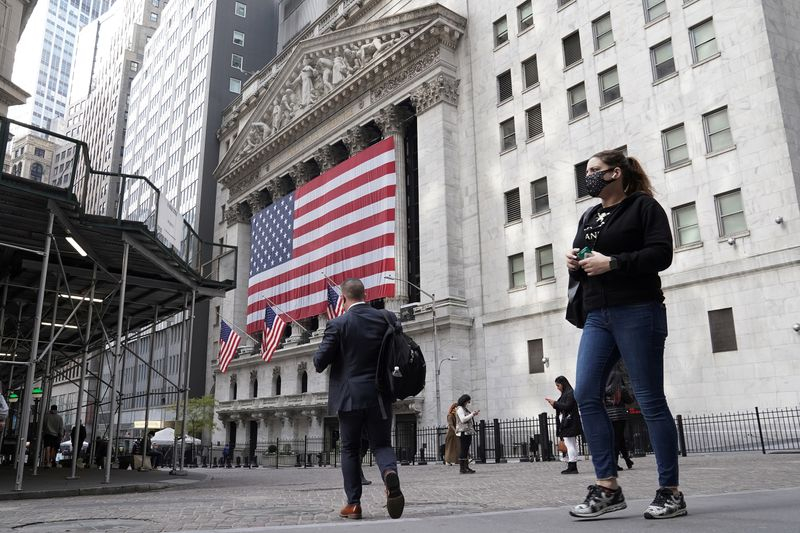Vaccine Hiccup, DoorDash, AirBnB IPOs, Stimulus Hope – What’s up in Markets

By Geoffrey Smith
Investing.com — U.K. regulators flag allergic reactions to the Pfizer/Biontech vaccine. DoorDash raises nearly $3.4 billion in a blockbuster IPO and AirBnB is expected to price later. Stocks edge up as politicians continue stimulus dance and the yuan hits new highs despite inflation dipping below zero for the first time in a decade. Here’s what you need to know in financial markets on Wednesday, December 9th.
1. Pfizer allergic reaction
U.K. health regulators warned that people suffering from allergy issues should not take the vaccine developed by Pfizer (NYSE:PFE) and BioNTech (NASDAQ:BNTX), after two British healthcare professionals experienced allergic reactions to the drug after being inoculated earlier in the week. Both carers are recovering well, according to an official from the National Health Service for England.
The news comes only two days after the U.K. began a mass immunization program using the drug, and a day after the U.S. Food and Drug Administration said it had found no safety issues in an analysis of data from the companies’ stage 3 trial. The FDA is expected to approve the drug for emergency use at a meeting on Thursday.
Elsewhere, the U.K. medical journal The Lancet published a peer review of the drug being developed by AstraZeneca (NASDAQ:AZN) and the University of Oxford, confirming it has over an efficacy rate of over 70% – markedly less than the Pfizer/BioNTech and Moderna (NASDAQ:MRNA) drugs, but enough to make it serviceable. Authorities in the United Arab Emirates confirmed that a drug developed by Chinese biotech company Sinopharm has an 86% efficacy rate.
2. DoorDash and AirBnB pricings
DoorDash priced its initial public offering at $102 a share, well above a marketing range that had already been revised upward, according to various reports.
That means the food delivery company will raise a total of $3.4 billion and gives it an overall valuation of $39 billion, more than double what it was valued at in a private round of fundraising earlier this year.
Online rentals agency AirBnB is also expected to price its offering later Wednesday. It has also raised its marketing range to eye a valuation of as much as $42 billion, in what would represent a stunning recovery from a pandemic-driven hit earlier in the year.
3. Stocks set to open higher; stimulus talks ongoing
U.S. stock markets are set to open mostly higher, supported by signs that the U.S. is edging closer to agreeing a fiscal package to lighten the burden on the economy from the latest wave of the Covid-19 pandemic.
Treasury Secretary Steven Mnuchin proposed a package of measures worth $916 billion to House Speaker Nancy Pelosi on Tuesday, and although Pelosi rejected it as offering inadequate funds to state and local governments, its size increases the pressure on Senate Leader Mitch McConnell to abandon his plans for a smaller bill.
By 6:30 AM ET (1130 GMT), Dow Jones Futures were trading up 75 points, or 0.3%, while S&P 500 Futures were up 0.2% and NASDAQ Futures were lagging, essentially flat on the day.
4. Yuan strengthens as Chinese inflation goes negative
China’s annual rate of inflation turned negative for the first time in a decade in November, but analysts were quick to play down any suggestion a destructive deflationary cycle. The CPI fell to 0.5% in year-on-year terms thanks largely to a massive spike in pork prices a year ago that has now unwound.
There have been more consistent signs of deflationary pressure in Chinese producer prices since the pandemic erupted. These fell in year-on-year terms for an eighth straight month in November, but at -1.5%, the decline was the gentlest since May. Other Chinese data released overnight showed loan growth moderating slightly, although it was still at nearly 13%.
The Chinese yuan strengthened on the back of the data, trading below 6.50 to the dollar in the offshore market for the first time in over 2 ½ years.
5. Oil steadies after API shock; EIA data due
Crude oil prices edged higher again after a setback on Tuesday, when American Petroleum Institute data showed another surprising rise in U.S. crude inventories, by over 1 million barrels.
A decline of over 1.5 million barrels had been expected, and the numbers were taken as fresh evidence of slowing demand due to ever-tightening public health measures restricting business and social life due to the pandemic. The U.S. Energy Information Administration releases its inventory numbers at 10:30 AM ET, as usual.
By 6:30 AM ET, U.S. Crude futures were up 0.2% at $45.67 a barrel, while Brent futures were up 0.2% at $48.94, supported by continuing signs of demand strength in Asia, notably from Indian refiners.

